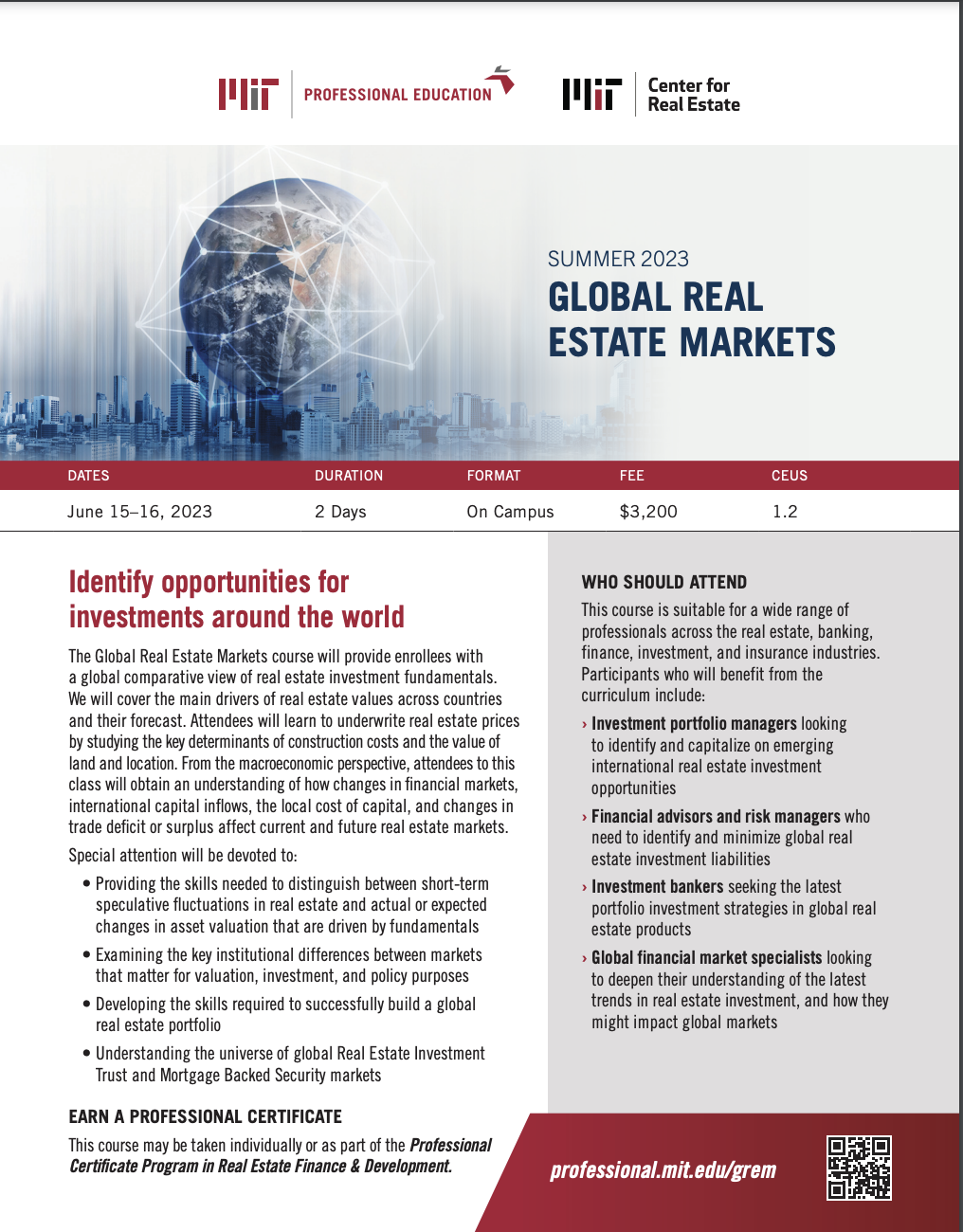Do you have the strategies and knowledge you need to maintain a competitive edge in the increasingly global real estate market? In this intensive two-day course, designed for individuals who deal with global financial markets and real estate investments, you’ll assess current industry trends, acquire proven tools and frameworks for building portfolios and minimizing risk in global contexts, and identify opportunities for investments around the world.
THIS COURSE MAY BE TAKEN INDIVIDUALLY OR AS PART OF THE PROFESSIONAL CERTIFICATE PROGRAM IN REAL ESTATE FINANCE & DEVELOPMENT.
The type of content you will learn in this course, whether it's a foundational understanding of the subject, the hottest trends and developments in the field, or suggested practical applications for industry.
How the course is taught, from traditional classroom lectures and riveting discussions to group projects to engaging and interactive simulations and exercises with your peers.
What level of expertise and familiarity the material in this course assumes you have. The greater the amount of introductory material taught in the course, the less you will need to be familiar with when you attend.




